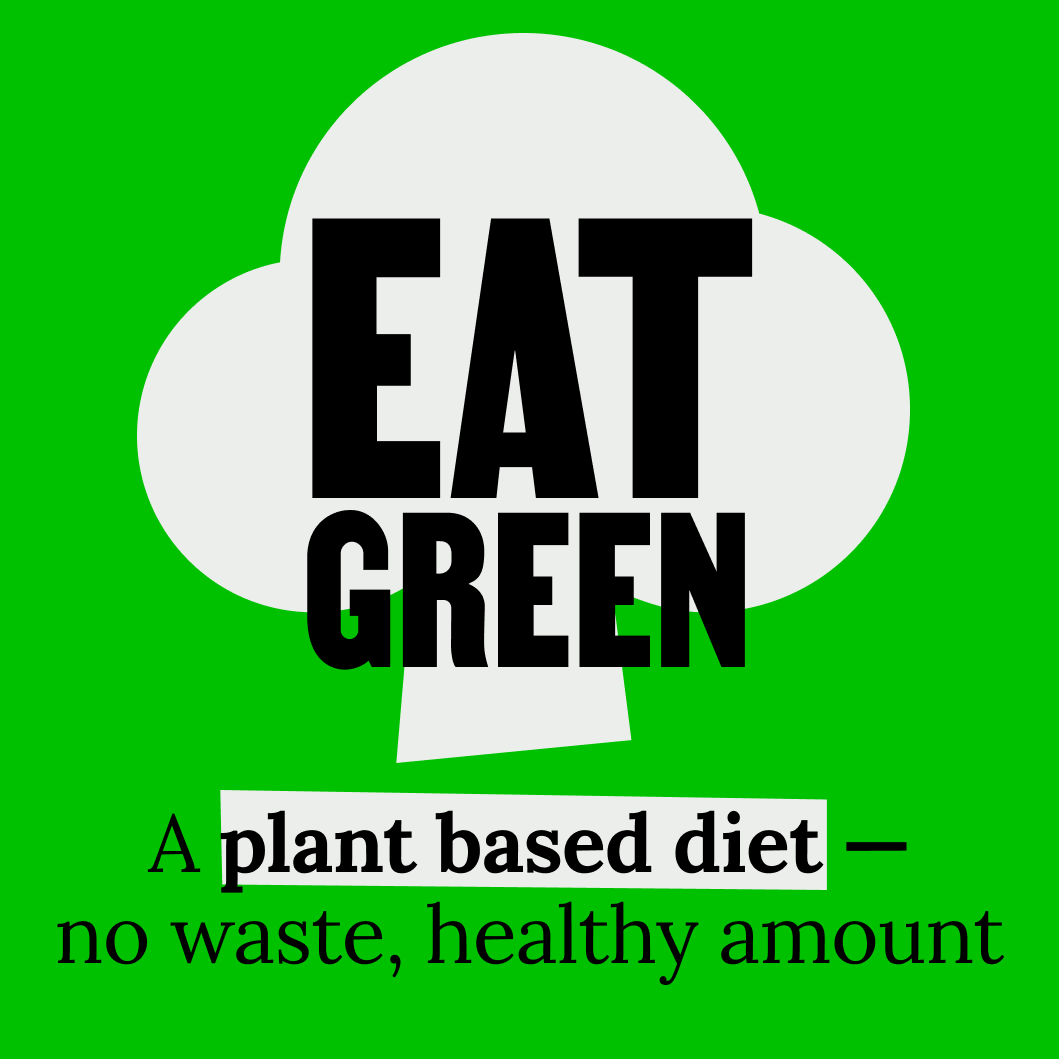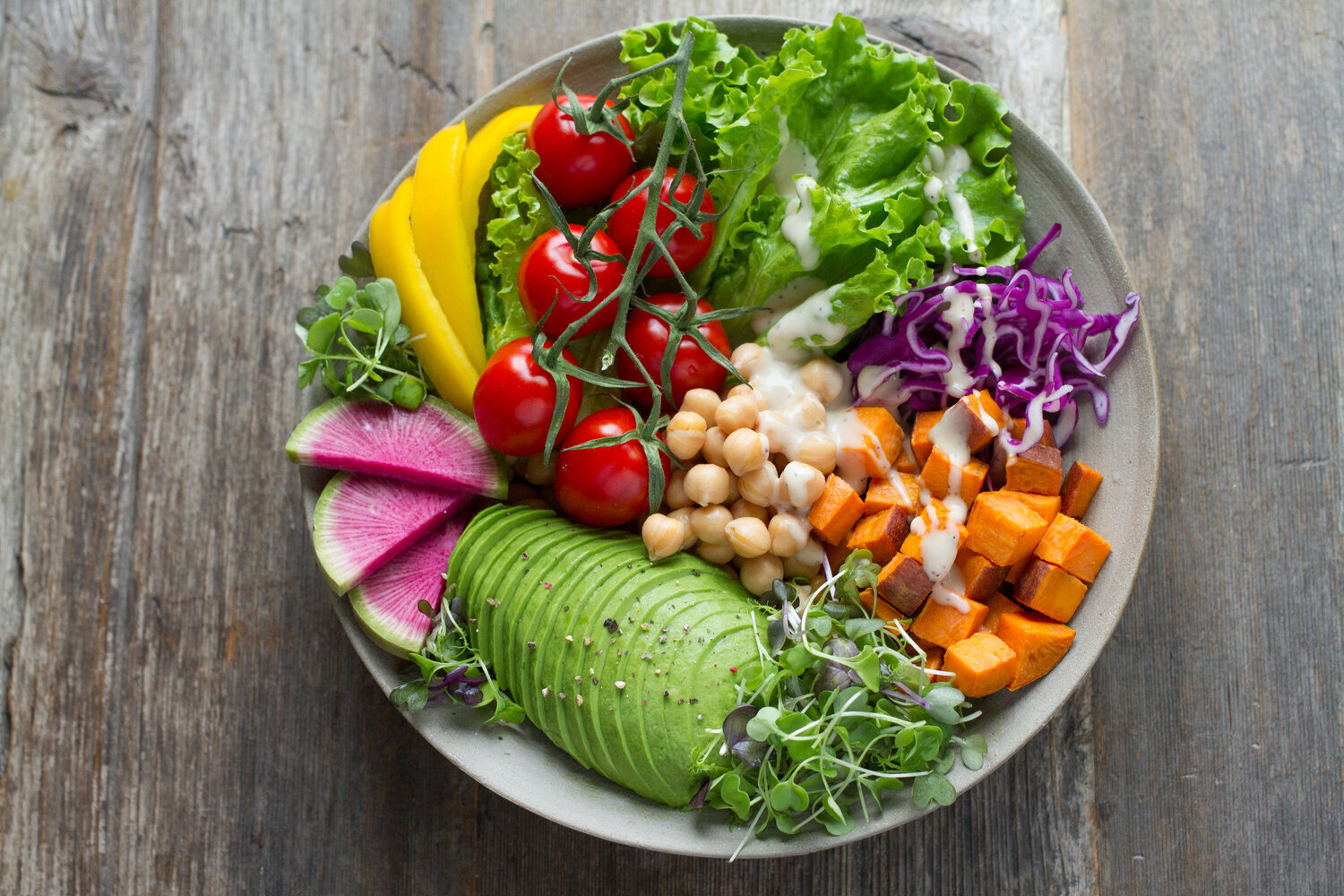
Check out our new ‘How-to’ guide for the EAT GREEN shift. It includes all the info on how to approach this in a step by step way, with resources, guides, tips, links and more.
What is eat green?
Our current eating habits are not sustainable. There are three changes we can make that will dramatically reduce emissions from the food we eat:
Move to a mostly plant-based diet. This means replacing most of the meat and dairy we eat with plant-based alternatives which are lower in overall emissions. The closer to entirely plant-based the better, though not everyone may want to go all the way. The upper limit for meat consumption is 16kg a year (so try a maximum of 300g per week) and 90kg of dairy (so try a maximum of [1.7kg per week), however it is much better to aim for closer to none. While ‘Taking the Jump’ try to eat an entirely plant-based diet.
Eat everything you buy. This means stopping throwing food away. If we stop wasting food entirely (or as close as possible) it means we can avoid wasting all the resources and emissions associated with producing that food and getting it on your plate.
Eat healthy amounts. This means not eating excessively. The ‘healthy amount’ of food will be completely personal for each person, body type and level of physical activity, so find what feels right for you.
Why eat green?
Changing our behaviours around food is the most impactful of all the shifts. And an added bonus is that we can all save money! More than 25% of total global emissions arise from the food system. And it’s not just about climate change; there is a biodiversity crisis too.
If you look at biodiversity loss, land use change, fertilisers in the ocean creating dead zones and the massive extinction and loss of insects due to pesticides, these problems are all driven by food.
Here’s some more detail:
Why are plant-based diets better? Evidence shows that animal-based foods, in particular red meat, are major sources of green house gas emissions. In the world's biggest cities alone, 170,000 lives could be saved from better diets (reference).
Why should we stop wasting food? Levels of food waste globally are huge: around a third of food produced is wasted. Some of this waste happens in the supply chain (partly driven by consumer preferences) but household food waste is a bigger issue. Every time we throw food away, it is not just the emissions associated with the management and disposal of food waste, but all of the energy and resources that have gone into producing that food that is then wasted.
Why should we eat healthy portions? Not only is there a massive impact of food production on emissions , but there are multiple health problems associated with overeating. Research shows that sticking to a recommended calorie intake of 2,500 kcal per day supports both human health and sustainable use of planetary resources (Eat Lancet Commission, 2019). This of course varies from person to person, body type and level of exercise.
How to eat green?
Check out the ‘How-to’ guide for EAT GREEN!
It covers:
What is EAT GREEN?
Why EAT GREEN?
Step by step guide to EATING GREEN
Take it step by step
Start with the right approach
Connect with others for support
Having fun with EAT GREEN
Resources to help
Apps
Websites
Podcasts
TED talks
Movies
Here’s a sneak peak to whet your appetite
If you have any comments or cool things we can add to this guide, do contact us at team@takethejump.org








